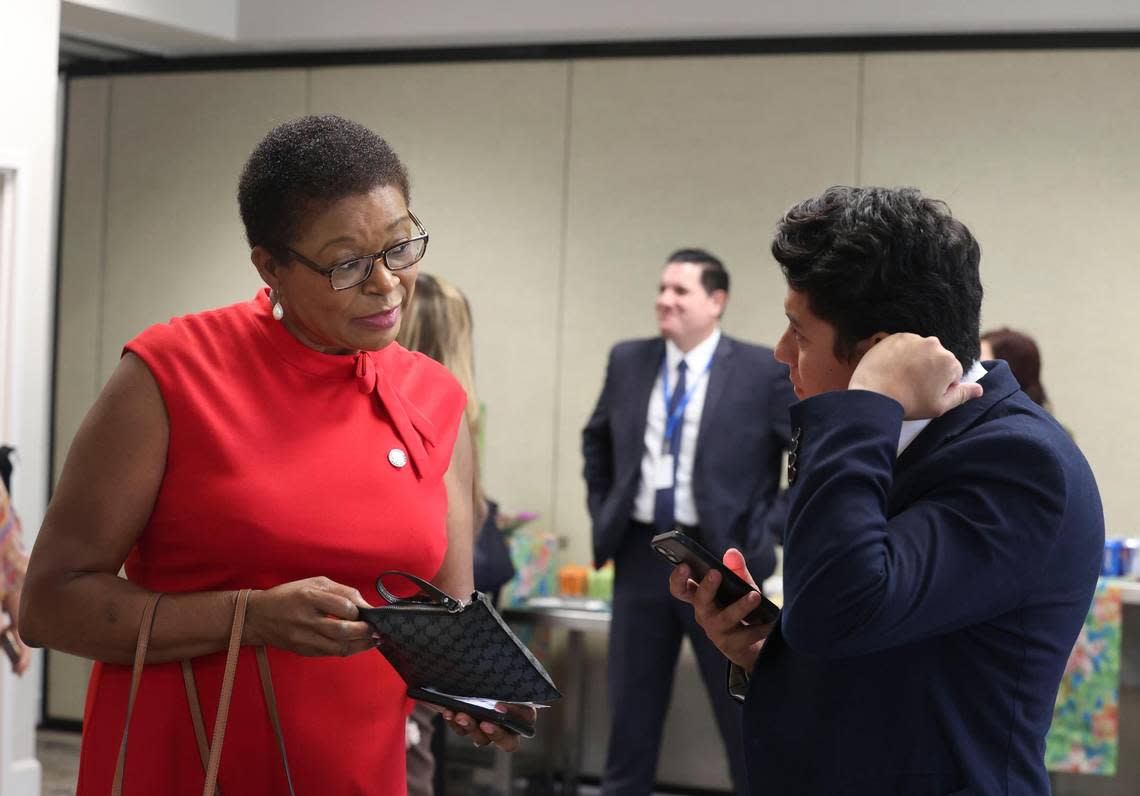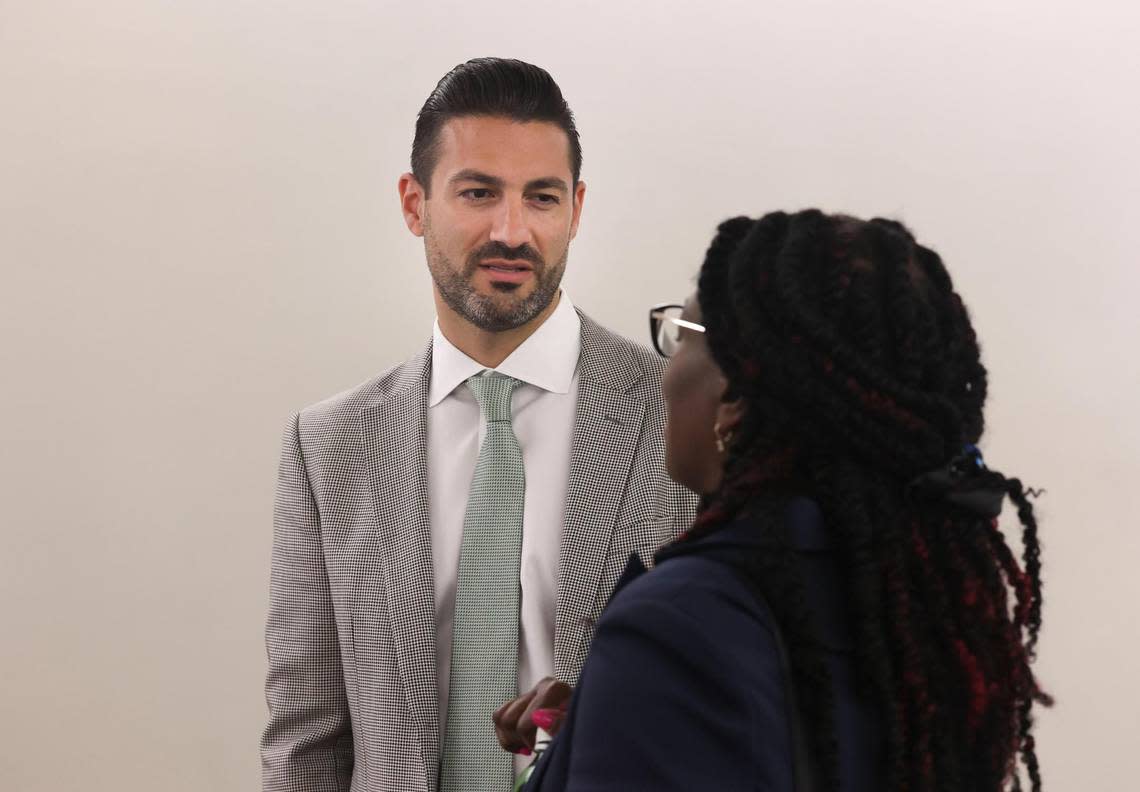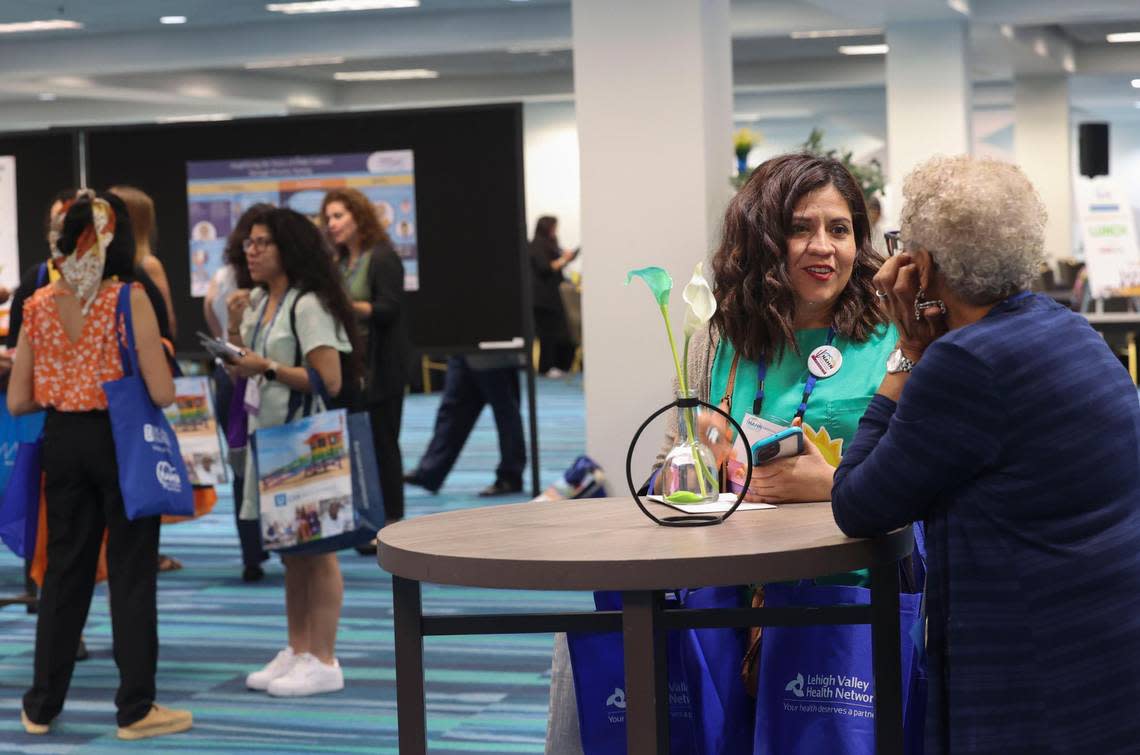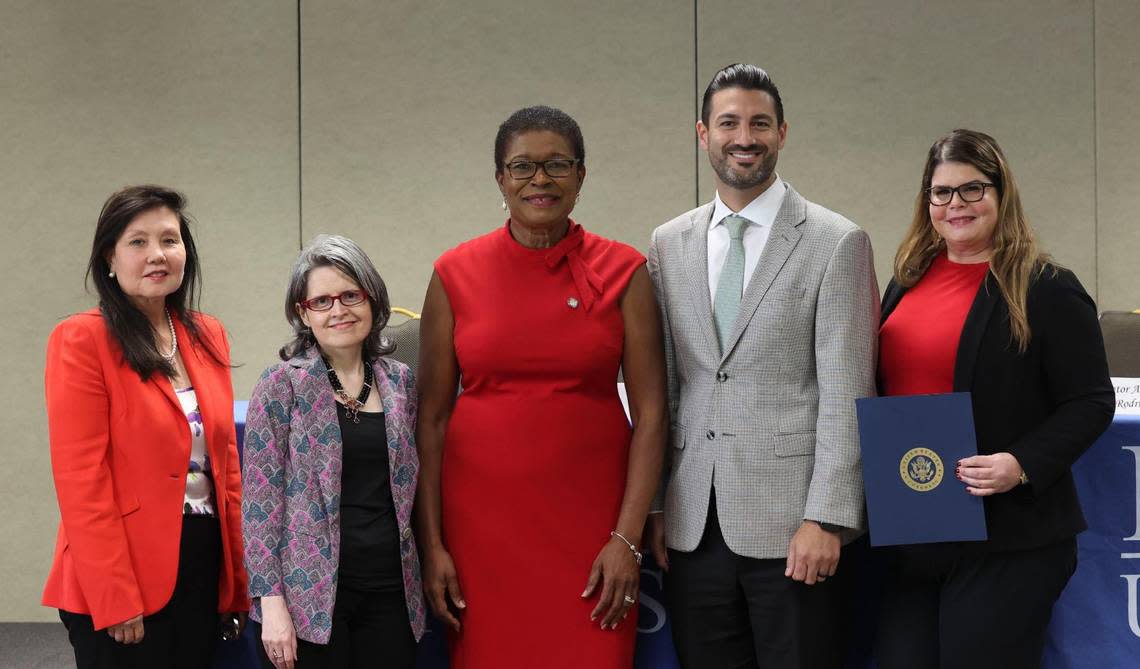Florida’s nursing shortage expected to worsen. Here’s how experts, officials hope to fix it
State Rep. Marie Woodson became a caregiver for 14 years after her mother suffered a stroke.
“I know what it takes for nurses to care for us,” she said. “I sympathize with them because I see the hard work that they are doing on a daily basis.”
By 2035, Florida will face a shortage of 60,000 nurses, a sharp increase from the deficit of 17,000 reported in 2019. These problems come at a time when 70% of hospitals in the state are already understaffed and a third of all nurses say they’re likely to leave the field by the end of the year.
“Let’s face it,” Woodson said. “Who is going to take care of us?”
In hopes of addressing the nursing shortage, Keiser University unveiled its nursing advisory council at a news conference Wednesday afternoon. The council is made up of policymakers, community leaders and healthcare professionals, some of whom spoke in a panel at the conference.
Legislators, Woodson said, are preoccupied with hot topic issues like affordable housing and mental health. But the nursing shortage, she said, is the “monster in our hands.”
She said she introduced a bill to provide veterans and medics in the armed forces a pathway into nursing. Many new nurses can’t afford housing to work in Florida, even if they studied at a university in the state. Woodson believes nurses need more incentives, such as affordable housing and child care.

“If you don’t have your health; if you don’t have someone to take care of you, nothing matters,” Woodson said.
Affordable housing is a major barrier in attracting nurses to South Florida, said Gino Santorio, president and CEO of Mount Sinai Medical Center. The health system started subsidizing condos for professionals relocating to the area.
Mount Sinai also offers on-site child care, he said. One of the health system’s doctors was once a child dropped off at daycare.
To retain and recruit nurses, hospitals need to innovate, Santorio said. He has worked on expanding nurse educator programs, quickly incorporating new technology and using simulation labs to build new nurses’ confidence.

“The supply of nurses cannot, and will not, meet the demand of our communities,” he said.
Belinda Keiser, vice chancellor at Keiser University, said she hopes to forge partnerships between hospitals and educational institutions and push for subsidized student tuition.
Many students, she said, can’t afford to stay in nursing programs because they’re working adults and single parents.
“If I’m going to pursue nursing, to give up my job is going to be a real challenge,” she said.
The proposal would be a win-win scenario because a student’s tuition would be partly or fully covered, and the hospital would be able to retain a nurse for a mandatory work period.
The pandemic exacerbated issues in nursing and caused many professionals to burn out, said Adrianna Nava, president of the National Association of Hispanic Nurses. The association included Keiser’s panel in its annual conference, which focused on health issues affecting Hispanic communities and helping Hispanic nurses break into the field.

Despite the shortage, Hispanics are underrepresented in nursing, Nava said. Many, especially those who immigrate to the United States, aren’t familiar with the pathway into the field. Latinos looking to pursue nursing may also feel discouraged.
Getting into nursing school is challenging because spots are extremely limited due to faculty shortages.
“Just getting into that career field can be challenging to navigate if you don’t have a mentor somebody to walk you through that,” she said.
However, Hispanic nurses are needed, especially in communities like South Florida, to support HIspanic patients navigating the healthcare system. Cultural awareness, she said, is a large part of patient-centered care.

Nursing programs turned away 80,000 qualified applicants last year because of faculty shortages, State Sen. Ana Maria Rodriguez said. To better train nursing students during the pandemic, the state moved $50 million in grants from the U.S. Health Resources and Services Administration to Florida universities.
In 2022, HCA Healthcare donated $1.5 million to increase enrollment and expand Florida International University’s nursing program, Rodriguez said. The University of Florida received $95 million and Florida Atlantic $64,000 for telehealth programs.
But more needs to be done.
“We should keep working together to increase opportunities and create paths for those interested in becoming nurses,” she said.
